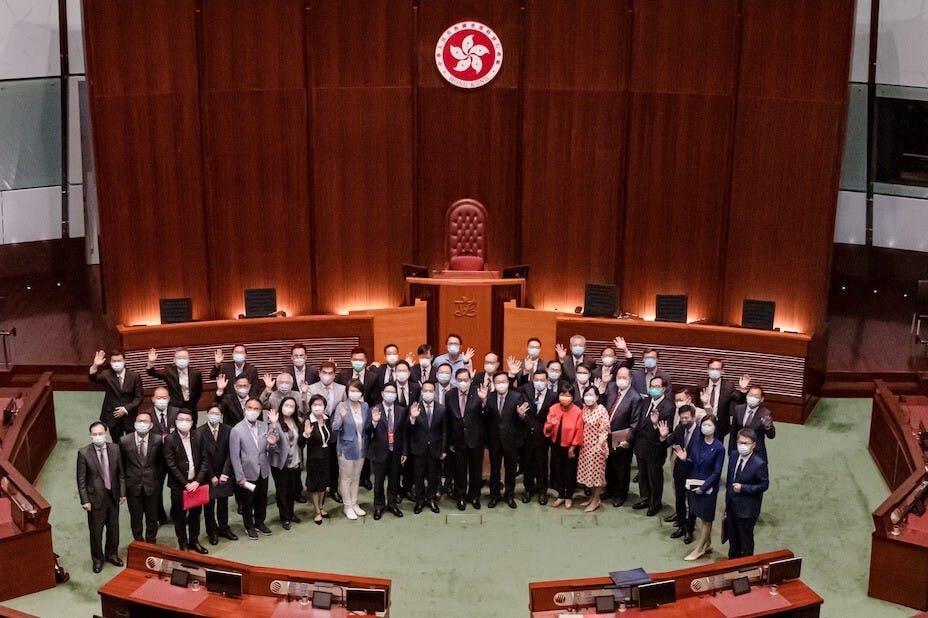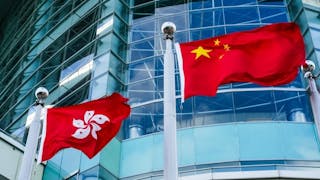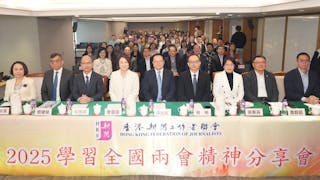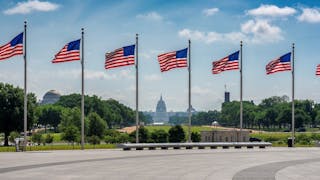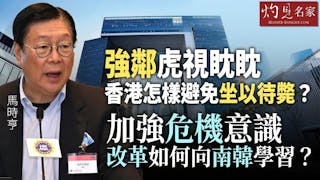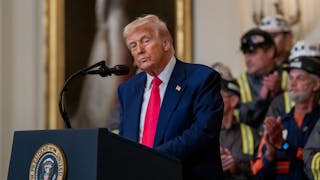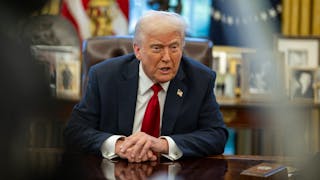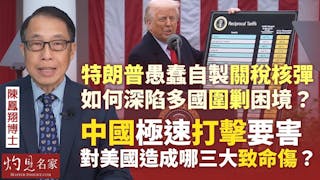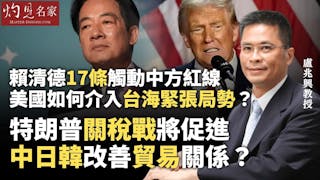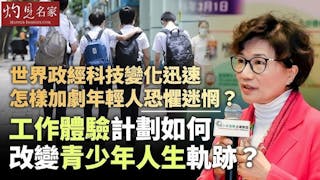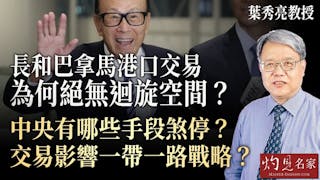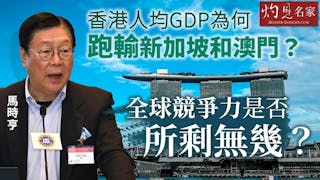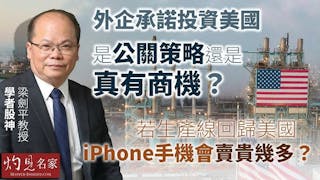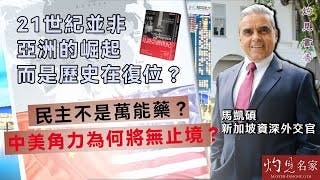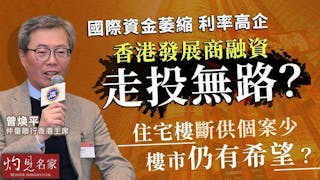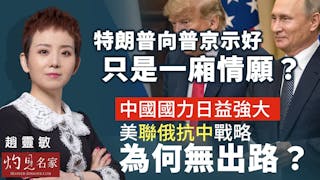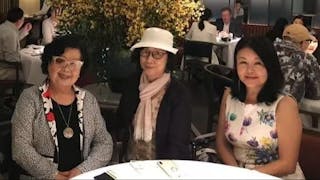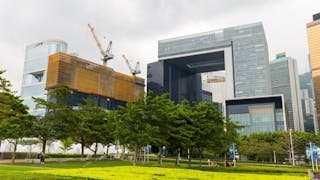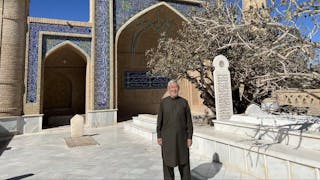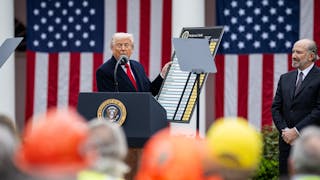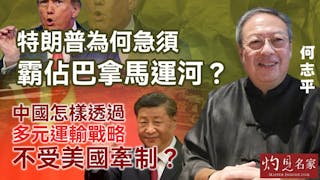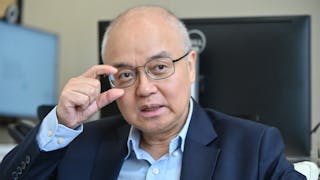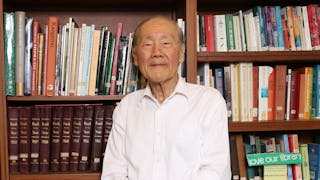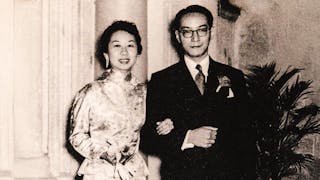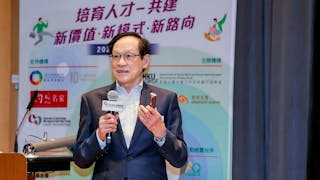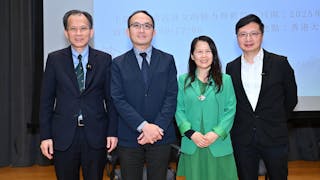11月19日,候選人資格審查委員會(資審會)舉行記者會,宣布選舉委員會成員提名的154人中,153人被裁定符合資格,獲准參加將於12月19日舉行的立法會選舉。這是香港特別行政區選舉歷史上的一個重要里程碑,尤其是在 2020 年 6 月下旬《香港國安法》頒布和 2021 年 3 月完善立法選舉制度之後。
被裁定參選資格無效的是一名參選醫療衞生界議員的精神科註冊護士,因受聘政府部門被取消參選資格。
20 個直選議席勝負成焦點
新一屆立法會將有90個席位,其中40席由1500人的選舉委員會選出,30個由功能界別選出,20個由地區直選產生,這場即將來臨的歷史性選舉有幾個突出的特點;
首先,傳媒的焦點集中在 20 個地區直選議席,每個地區選出兩名立法會議員,選民將見證至少一名非建制派候選人與其他建制派候選人競爭。
在港島東,自稱「中間偏黃」的「中科監察」主席潘焯鴻獲得提名,但他的機會似乎渺茫,因為他面對兩名相對強勢的候選人──工聯會的吳秋北和民建聯的梁熙。
在港島西,自報「獨立民主派」的離島區議員方龍飛,要挑戰兩位著名的建制派候選人──民建聯的陳學峰和新民黨的葉劉淑儀。
在九龍東,民主思路的陳進雄,挑戰以工聯會鄧家彪和民建聯顏汶羽為主的建制派陣營。
在九龍西,非建制老將馮檢基與民建聯的鄭泳舜和西九新動力的梁文廣競爭。 如果九龍西的選民投票率不低,馮檢基似乎有機會當選,因為他在親民主派活動和社區工作中有往績可循。
在九龍中,曾是人民力量成員的譚香文獲裁定合資格參選,與民建聯主席李慧琼及親建制的九龍城區議會主席楊永杰競爭。 如果九龍中有很多選民出來投票,譚香文有可能表現出色。
在新界東南,蔡明禧作為非建制派候選人,有機會與民建聯的李世榮和「專業動力」的建制派林素蔚一較高下。蔡明禧似乎很有機會,因為他曾擔任過區議員,有服務基層的經驗。
在新界北,曾麗文作為非建制派的家庭主婦,要與民建聯的劉國勲和元朗區議會主席沈豪傑等明顯更強的候選人競爭。不過,但曾麗文作為女性候選人,可能會吸引女性的選票。
在新界西北,新思維的黃俊瑯要與實力更強的對手角逐,即民建聯的周浩鼎和實政圓桌的田北辰。
在新界西南,非建制的劉卓裕要與民建聯的陳恒鑌和工聯會的陳穎欣競爭。
民主派知名人物勝算增
最後,在新界東北,兩名非建制候選人,民主黨前成員黃成智和民主思路的黃頴灝,要與民建聯的陳克勤和新民黨的李梓敬競爭。黃成智是一位顯然有更大膽政綱的候選人,他呼籲特赦在囚的民主派人士。 由於公開支持政府的政改模式,2015 年他被民主黨開除。黃成智在即將到來的選舉中,作為政綱相對提倡自由的溫和民主派人士,他的表現值得密切留意。
簡言之,對於競選經驗豐富的資深非建制派候選人馮檢基和譚香文,在九龍西和九龍東分別與親建制候選人競爭,勝算較大。蔡明禧也有機會在新界東南獲得成功;劉卓裕在新界西南的表現,以及黃成智在新界東北的表現,都值得關注。
第二,在功能界別選舉中,三名非建制候選人──社會福利界的新思維狄志遠、會計界的文思怡和工程界的黃偉信,要對壘其他建制派候選人。 顯然,鑑於狄志遠的往績,他很有可能當選,即使他面對的是民建聯的註冊社工朱麗玲。
重量級人大政協贏面大?
整體而言,立法會通過直選,最少2名或最多5名非建制派候選人可當選,而功能界別的最少1名非建制派候選人可當選。 總而言之,當選立法會的非建制派候選人可能不足6、7人,這將保證建制派精英「愛國者治港」。
第三,在選舉委員會方面,51名候選人角逐40個席位,意味着必須觀察兩個現象:那些同時是全國人大代表和政協委員的候選人,是否更有機會當選?而「首先考慮」的候選人,是否會像一些港媒報道那樣,在30歲上下? 換言之,大約 10 個席位可能真正有競爭,而大約 30 名候選人,由於具備重量級的政治身份,可能更有機會當選。
而兩位背景有趣的候選人,即傳媒報道在 2008 年放棄加拿大公民身份的盛智文(Allan Zeman),以及2001 年成為首位外籍香港公務員入籍中國的盧維思 (Mike Rowse),兩人在這51名候選人中,表現值得關注。
第四,在政黨方面,民建聯派了22名候選人,工聯會10名,經民聯9名,自由黨6名,新民黨6名,即大多數候選人不屬於任何政黨或團體。意味着在12 月 19 日立法會選舉之後,建制派勢力要在許多政策問題上達成共識,仍將是一個挑戰,從房屋到社會福利,從土地到稅收改革。不同階層的矛盾和緊張可能會繼續存在。立法會議員來自不同的階層,儘管在香港特別行政區選舉歷史上,新一屆立法會議員在政治上的愛國情懷遠高於前任。
內地港人投票史無前例
第五,政府已宣布安排在內地的香港居民在邊境投票,技術細節正在與內地政府商定。這將是在內地的香港人首次有資格投票,這是香港特別行政區選舉歷史上前所未有的事情。
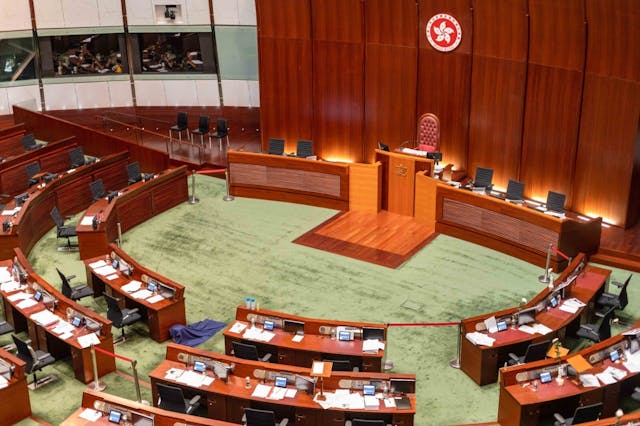
第六,內地學者、全國港澳研究會理事田飛龍在11月20日提出,立法會選舉的整體選民投票率,可以綜合三個部分的投票率,即直接選舉、功能界別選舉和選舉委員會選舉的投票率「加權處理」(一併計算總和投票率),前立法會主席曾鈺成公開反駁,將不同數字混為一談,在數學上難以成立。
重建港人政治信心更重要
按照一些親建制人士的想法,選民投票率問題似乎「令人困惑」。 然而,考慮到從 2019 年的政治動盪事件到《香港國安法》實施,直接選舉的選民投票率似乎比以往任何時候都會低得多。或許一些親建制人士不需要關注選民投票率的問題。相反,應該更多地關注改善香港的選舉氣氛,藉此重建普通市民的政治信任和心理和諧。
總而言之,12月19日在香港舉行的立法會選舉將是具有里程碑意義的選舉。 這不僅代表向「愛國者治港」邁出一步,也標誌着非建制候選人或非常溫和的自由民主派在香港新政治體制中享有多少政治空間。 如果「一國兩制」的原則,代表一定程度的社會政治寬容,或許應該鼓勵、擁護和強調少數溫和民主派人士進入香港的立法機構。
如果西式民主在香港已經被拒絕和拋棄,那麼2021年12月的立法會選舉,必然象徵着「港式民主」的實踐。
New Features of the December 2021 Legislative Elections in Hong Kong
On November 19, the Candidate Eligibility Committee held a press conference announcing that 153 out of 154 candidates nominated by the members of the Election Committee could formally fulfill the eligibility requirements and are allowed to run in the Legislative Council (LegCo) elections to be held on December 19, 2021 – an important milestone in the history of elections in the Hong Kong Special Administrative Region (HKSAR), especially after the promulgation of the national security law in late June 2020 and the revamp of the legislative electoral system in March 2021.
The candidate who was disqualified was a hired by a government department as a part-time employee, and as such, he was regarded as ineligible for running in the upcoming election.
There are several prominent features in this upcoming historic election in which the new LegCo will have 90 seats, 40 of which will be elected by the 1,500-member Election Committee, 30 elected from functional constituencies, and 20 from geographical constituencies in direct elections.
First and foremost, the media spotlight was focusing on the 20 geographical constituencies in direct elections, where each geographical constituency returning two elected legislators witnesses at least one non-establishment candidate competing with other pro-establishment candidates.
In Kowloon East, a non-establishment candidate named Poon Cheuk-hung got nominated, but his chance appears to be slim as he is facing two relatively strong candidates, Stanley Ng Chau-pei from the Federation of Trade Unions (FTU) and Leung Hei from Democratic Alliance for Betterment and Progress of Hong Kong (DAB).
In Hong Kong Island West, non-establishment and Island district council member Fong Lung-fei is encountering two famous pro-establishment candidates, Chan Hok-fung from DAB and Regina Ip from the New People’s Party.
In Kowloon East, Jeffrey Chan from the Path of Democracy (PoD) is entering the stronghold of pro-government forces led by Tang Ka-piu of DAB and Ngan Man-yu of the DAB.
In Kowloon West, non-establishment veteran Frederick Fung is competing with Vincent Cheng of the DAB and Leung Man-kwong of the West Kowloon Synergy. Fung appears to stand a chance of being elected if the voter turnout in Kowloon West will not be “low” because his track record in the pro-democracy movement and consistent constituency work.
In Kowloon Central, Mandy Tam as a former member of the People Power and Civic Party is allowed to run against Starry Lee of the DAB and pro-establishment and Kowloon City district council chair Yeung Wing-kit. Mandy Tam will likely have a chance to perform well if many voters in Kowloon Center come out to cast their ballots.
In New Territories Southeast, Daryl Choi Ming-hei as a non-establishment candidate stands a chance to compete with Lee Sai-wing of the DAB and Lam So-wai of a pro-establishment group named Professional Power. Choi appears to stand a good chance as he has been a district councilor with some grassroots experiences.
In New Territories North, Tsang Lai-man as a non-establishment housewife is competing with the apparently stronger candidates Lau Kwok-fun of the DAB and Yuen Long district council chair Shum Ho-kit. But Tsang as a female candidate may attract the votes from women.
In New Territories Northwest, Wong Chun-long of the Third Side is competing with the stronger candidates, namely Holden Chow of the DAB and Michael Tien from the Roundtable.
In New Territories Southwest, non-establishment Lau Cheuk-yu is competing with Ben Chan Han-pan of the DAB and Chan Wing-yan of the FTU.
Finally, in New Territories Northeast, two non-establishment candidates, Wong Sing-chi of formerly the Democratic Party and Allan Wong are competing with Gary Chan Hak-kan of the DAB and Dominic Lee Tsz-king of the New People’s Party. Wong Sing-chi is a candidate who apparently has bolder platform, calling for the amnesty of those democrats who are imprisoned. He had been expelled from the Democratic Party in 2015 for his open support of the government’s political reform model. The performance of Wong as a moderate democrat with a relatively liberal platform in this upcoming election will be watched carefully.
In short, it appears that veteran non-establishment candidates Frederick Fung and Mandy Tam, who had rich experiences in electoral campaigns, may have a stronger chance of rivalling the pro-government candidates in Kowloon West and Kowloon East respectively, while Choi Ming-hei may also have a chance of success in New Territories Southeast. The performance of Lau Cheuk-yu in New Territories Southwest and Wong Sing-chi as well as Allan Wong in New Territories Northwest will be noteworthy.
Second, in functional constituency elections, three non-establishment candidates – Tik Chi-yuen of the Third Side competing in the social welfare sector, Man See-yee in the accountancy sector, and Wong Wai-shun in the engineering sector – are running against other pro-establishment candidates. Apparently, Tik may stand a good chance of being elected given his track record, even though he is facing registered social worker Chu Lai-ling from the DAB.
Overall, a minimum of two non-establishment and a maximum of five candidates may be elected to the LegCo through direct elections, while at least one non-establishment candidate in the functional constituencies may be elected. Altogether, the number of non-establishment candidates who would be elected to the LegCo would likely be less than six or seven – a situation that would guarantee the phenomenon of pro-establishment elites running the HKSAR.
Third, in the Election Committee sector, 51 candidates are competing for 40 seats, implying that two phenomena will have to be observed: whether those candidates who are also the members of the National People’s Congress (NPC) and Chinese People’s Political Consultative Conference (CPPCC) will stand a better chance of being elected, and whether the “preferred” candidates to be elected would be around 30 as some Hong Kong media reported. In other words, about 10 seats would perhaps be truly competitive while some 30 candidates may stand a better chance of being elected due to their politically heavyweight nature. Two candidates with interesting background, namely Allan Zeman, who renounced his Canadian citizenship in 2008 as reported in the press, and Mike Rowse, who in 2001 was the first non-Chinese civil servant to become naturalized citizen of the People’s Republic of China, are among the 51 candidates and their performance will be watched closely.
Fourth, in terms of party politics, DAB is fielding 22 candidates, FTU 10, the Business and Professional Alliance 9, Liberal Party 6, the New People’s Party 6, meaning that most of the candidates are not affiliated with any political party or group. The implication is that, after the LegCo elections on December 19, it would remain a challenge for the pro-establishment forces to come to a process of consensus-building on many policy issues, ranging from housing to social welfare, and from land to tax reform. Class differences and tensions would likely persist in the LegCo where legislators will come from varying class background, although they are and will be far more politically nationalistic than their predecessors in the electoral history of the HKSAR.
Fifth, the government has announced that Hong Kong residents in the mainland will be arranged to vote along the border with the technicalities being worked out with the mainland government. This will be the first time that Hong Kong people residing in the mainland will be allowed to vote – an unprecedented event in the electoral history of the HKSAR.
Sixth, while mainland academic Tian Feilong on November 20 suggested that the overall voter turnout in LegCo elections can be tabulated by integrating the three sectors’ voter turnout, namely combining the voter turnouts of direct elections, functional constituency elections and Election Committee election, former LegCo President Jasper Tsang said in public that such a suggested move would be meaningless.
The issue of voter turnout appears to be “baffling” in the mindset of some pro-establishment elites. However, given the politically turbulent events from 2019 to the immediate aftermath of the implementation of the national security law, it appears that the voter turnout in direct elections will most likely be much lower than ever before. Perhaps some pro-establishment elites need not focus on the question of voter turnout. Rather, more attention should be paid to improve the election atmosphere in the HKSAR to rebuild political trust and harmony in the psyche of the ordinary citizens.
In conclusion, the LegCo elections to be held in the HKSAR on December 19 will be a landmark one. It will not only represent a step toward “patriots ruling Hong Kong” but also signal the degree of political space to be enjoyed by the non-establishment candidates, or the very moderate liberal democrats, in the new political system of Hong Kong. If the principle of “one country, two systems” entails a certain degree of socio-political tolerance, perhaps the entry of a tiny minority of moderate democrats into the law-making legislative body of the HKSAR should be encouraged, embraced and emphasized. If Western-style democracy had already been rejected and jettisoned in the HKSAR, then the December 2021 LegCo elections will certainly symbolize the implementation of a Hong Kong-style of democracy.
原刊於澳門新聞通訊社(MNA)網站,本社獲作者授權轉載。





